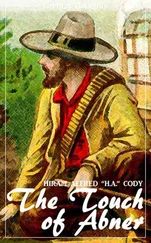And yet, for all the face showed of weakness, King was at once struck by the intensity and the unswerving directness of his gaze when Keith McBain turned to look at him. At first there seemed to be a shadow of suspicion in the grizzled old face, but King could not help observing the slow change to something almost kindly that showed deep in the old man's eyes as he got up and extended his hand.
"Come and sit down," he said. "The girl told me you were coming. She's off somewhere in the hills after berries – come and sit down."
When they had talked a little King was so much moved by the note of pathos that crept into the voice of Keith McBain that he determined at once to share with him the news that he had received only the night before. Evidently Old Silent was in a pensive mood, and King inwardly longed for someone to whom he could speak concerning what had lain heavily on his heart all day.
For a long time after King had spoken, Keith McBain sat without uttering a word.
"Aye, boy, you've suffered a great loss," he said at last, and his gaze was straight before him towards the hill-tops in the distance. As he continued he seemed to be talking to himself rather than to King. "It's hard for men to know what a thing like this means until they have tasted it themselves. For years I have gone out in the morning with men when the light was scarce showing through the swamp and have come in again at night tired after the work of the day to sleep – and make ready for the next day. And I've watched them – all ready for the 'roll out' when the call came at daybreak. And I've marvelled at their punctuality – and their willingness. And then a day would come when one of them wouldn't be in his place. He'd heard the call but couldn't go out. And later – perhaps a few days just – he didn't hear it – and the rest of us were quieter for a while – a little less given to talking; and then things went on very much as usual and we forgot. It's very good to forget."
King was pleased with the complete freedom from restraint that now marked the old man's manner. He talked well, with the merest trace of Scotch accent recognizable in the way he rolled his r's. He paused a moment and King made no attempt to interrupt. Finally he began again.
"Aye – it's good to forget – when you can. But there are times when a man can't forget – not altogether. You and I know that, my boy – we know it too well. And we won't talk about it either – except to mention it in passing. And in passing I want to say that I am very sorry. Where's the use trying to say more – a man can't."
He tapped his pipe gently against his hand and went leisurely about the task of filling it again.
"A straight man – and a clean man," he said gently, "is a rare enough article. As men go, I haven't seen many that could answer to that description. The world is full of good women, my boy – I've seen a few they told me weren't straight and weren't clean, but I've never known any such myself – though I've known a lot of women, too. But the men I've known – "
He paused as if in contemplation of how he should express most effectively what was on his mind. In the interval of silence there was a sound of excited voices and hurried footsteps coming down the path towards the cabin. Looking up King recognized the two men approaching as the camp cook and his assistant. Their differences had apparently reached a head, and they were coming to thresh the matter out before the boss.
In an instant Keith McBain was himself again. Leaping up before the men had come within speaking distance he met them in the pathway and fell upon them with a flow of profanity that not only reduced the two to impotent silence but sent them back along the pathway and up the trail to the camp, the picture of mute dejection and defeat.
When the old contractor returned and took his seat again, he lighted his pipe in bad mood and puffed at it vigorously without speaking a word. It required only a glance at his face to realize that a change had come over him. Keith McBain was Old Silent again and nothing would bring him out of his surly mood.
King got up slowly and started down the footpath that led to the hills back of the cabin. Somewhere back in the shambles of pitched timbers and broken tree-trunks was Cherry McBain. When he came finally to where the path was so dimly marked that he could follow it no farther he climbed to the top of a little knoll and looked in every direction along the face of the hill to see if Cherry were anywhere in sight. Finally, when he had looked for some time in vain, he called and waited until the echoes died away in silence. There was no reply. Getting down from the knoll he scrambled further up the hill. He had seen a patch of grey ground away to the west where the fires of the year before had swept the hills clear of vegetation. In ten minutes he emerged from the cover of the evergreens and looked across the tangled mass of half-burned and fallen timbers. The climb had not been an easy one, and it was only with slight hope that he gave his call again and stood tense and motionless as he listened for a reply. From every side the echoes came back and gradually died away in faint waves that finally settled into stillness. He was about to turn back again and make for the camp, but just once more he called and waited.
Almost immediately and from a surprisingly short distance away Cherry's voice came clear to him across the patch of grey. Turning at once in the direction of the voice he looked and saw her waving her hand to him. In a few moments he was beside her, where she was seated on the ground picking twigs and leaves out of the small pail of berries she held in her lap. She looked up at him and laughed roguishly, then offered him a large red berry which she held up to him between stained finger and thumb.
"Didn't you hear me call the first time?" he asked her.
She dropped her eyes and seemed very intent upon rolling the berries about in a vain search for more leaves. He waited for her answer. Ordinarily he would not have asked the question seriously. Even now he had no thought of accusing her. When she finally spoke he was at a loss to know what was in her mind.
"I – heard – you," she said, very slowly, and the tone of her voice was strange to King.
He waited, not knowing what to say in return, and hoping, too, that she might say something without his prompting her. When he saw that she was not going to speak, he asked another question as directly as he had asked the first.
"Why didn't you answer?"
The next moment he wished with all his heart that he had not spoken. The look she gave him was one in which appeal and disappointment were so deeply mingled that he cursed himself inwardly for his own clumsiness.
"Don't ask me why," she said. Then as she saw the grave look in King's eyes she got up and placed her hand on his arm. "Oh, it has nothing to do with you," she said in a voice that was all softness. "I – I didn't know at first that – that it was you."
Suddenly her manner changed.
"Let's go down now," she said quickly, picking up her pail of berries. "We're going to have tea."
Almost as she spoke the words she was off down the hill at a pace that made King exert himself to keep up with her. She ran along the smooth round timbers and leaped from one to another of the fallen logs so lightly and gracefully that King was put to it to save himself from being completely outstripped. She carried her berries in one hand and her hat in the other, and her hair, blown loose by the breeze, shone in the sunlight – transparent gold against a mass of black.
As he watched her, something of the wonder of their first meeting came back to him. He had never seen a girl so lithe, so wild, so beautiful. There was exultation in her every movement, and her laugh rippled musically as she leaped and climbed and ran along over the most difficult ground. Sometimes she looked back at him as if to make sure that he was following, and he saw her face radiant with life and youth. Once she waited till he came up to her before venturing along a dizzy bit of footing that required care in passing. When he came to her she placed her hand in his and together they went on.
Читать дальше












